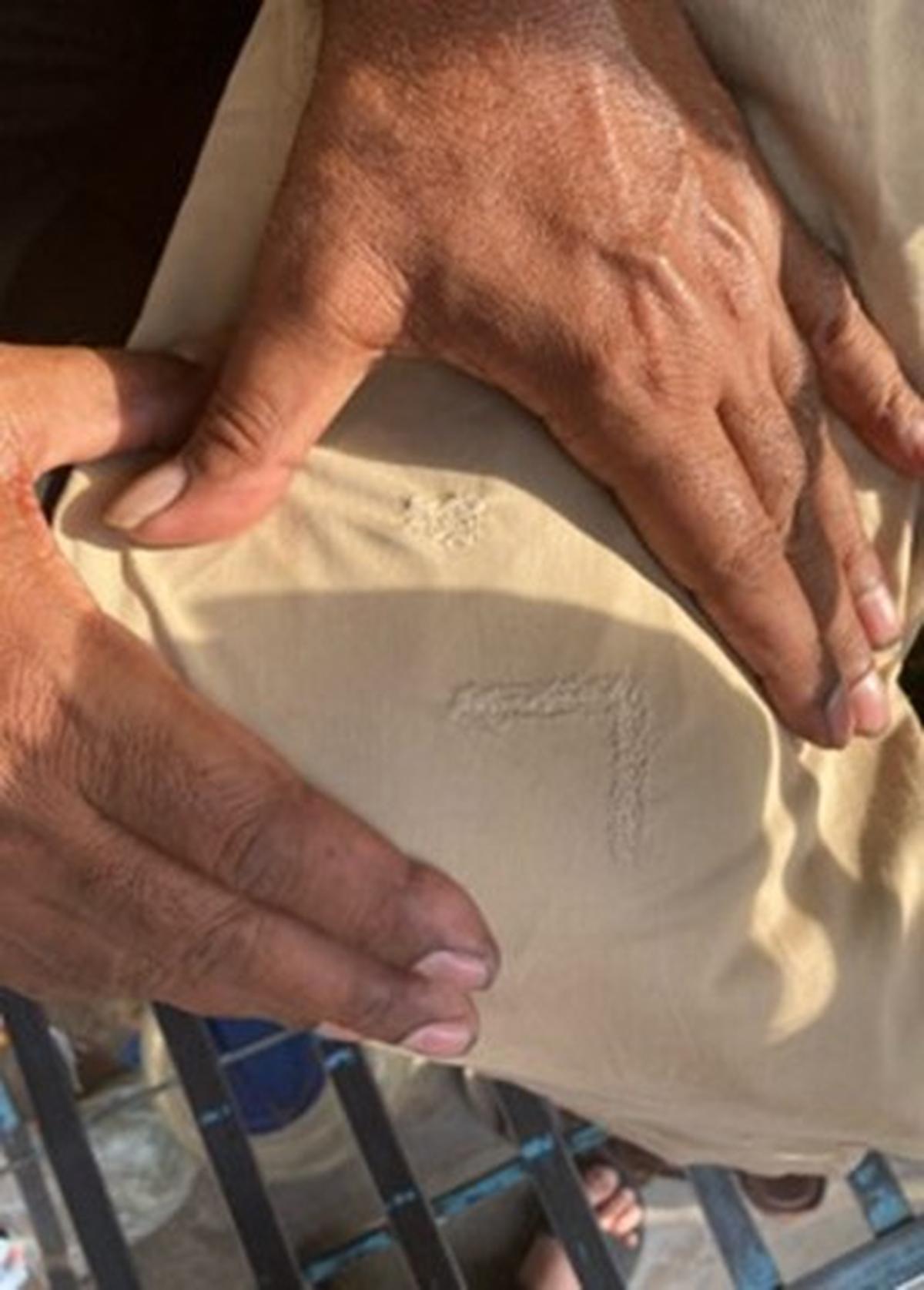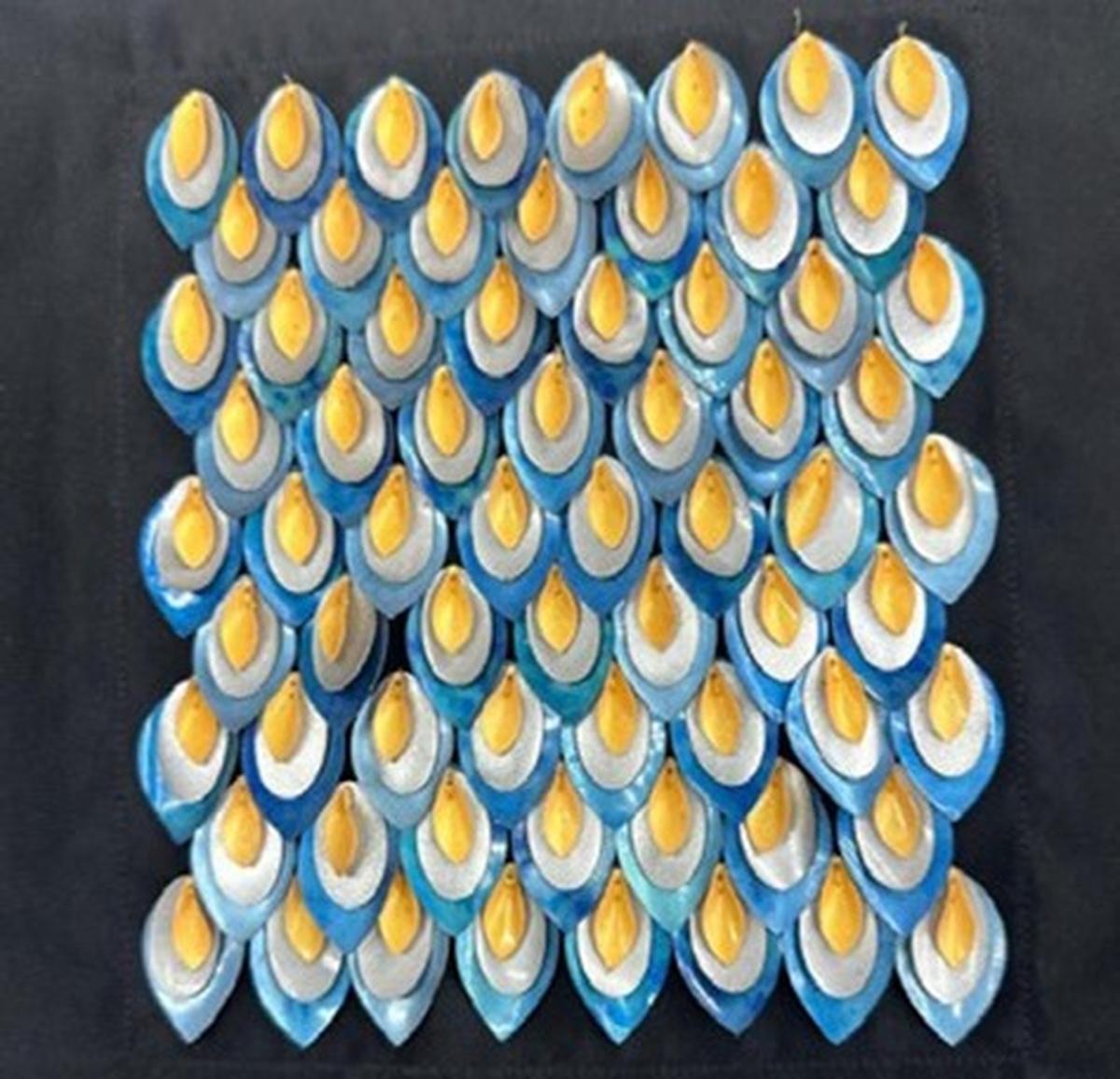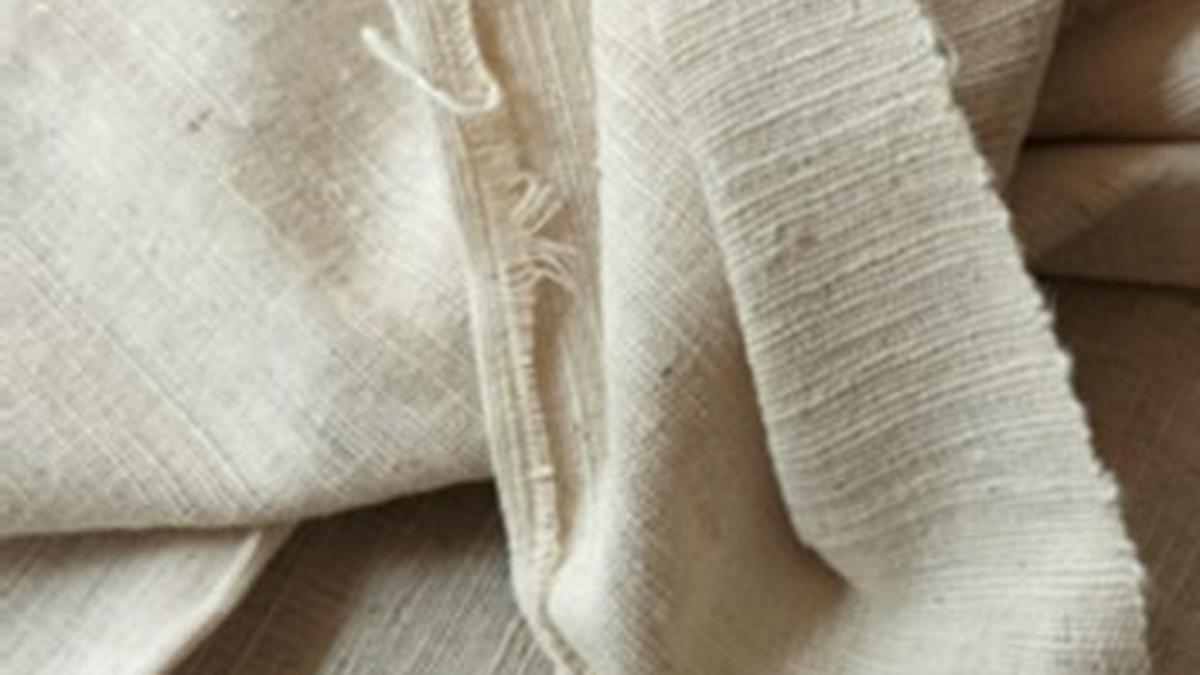A handwoven fabric by Circular Khadi
| Photo Credit: Special Arrangement
Sequins crafted from algae and cellulose, fabric recycled from textile waste, and garments mended the traditional way are some of the climate positive initiatives showcased at an exhibition, Making Matters India and the UK, on at the British Council in New Delhi.
With a bouquet of projects attempting to redefine sustainability in the textile and fashion industry, it spotlights sustainable practices. From research and development to hands-on tool kits, it provides insights and practical solutions for ethical, forward-thinking fashion. Here, visitors can engage with industry experts, share knowledge and explore collaborations.
As a part of its work in the arts, the British Council has initiated joint projects between India and the UK to create an understanding of how indigenous craft can benefit from new technology to help build a more sustainable fashion and textile industry.

A fabric mended by the Darn initiative
| Photo Credit:
Special Arrangement
The idea is to provide a platform for people from the textile industry, academics, and the market to come together and discuss climate positive outcomes, says Alison Barrett, MBE, Director India, British Council. “We deepened our global partnership with collectives working towards sustainability in fashion in India to understand the craft landscape and the needs in the sector,” she says.
Among the projects on show at the exhibition is Circular Khadi, a collaborative project between Conserve India (an organisation in India that works towards tackling plastic waste). Circular Khadi addresses the growing textile waste problem in India by recycling handloom cotton waste fabrics and yarns and integrating them into the khadi (handspun, handwoven fabric) value chain. It explores how small scale machinery can be used to promote environmental conservation and social uplift in rural areas.
Then there is Where Does It Come From? (a social enterprise that creates eco-conscious clothing and textiles in the UK), Khadi London (a non-profit knowledge hub specialising in regenerative fabrics in the UK) and Khamir (a platform for the crafts, heritage and cultural ecology from Kutch, Gujarat).
Recently, a young artisan from the Kutch region spent six weeks in the UK, where he worked, met stakeholders and learnt from their approaches. “Through such artisan in residence programmes, we hope artisans can focus on developing their practices and bring the learning back to India. India has significant expertise that the UK is keen to learn from,” Alison says.

Sequins made of algae and cellulose by Bequin
| Photo Credit:
Special Arrangement
Another project at the exhibition, BEQUIN, is an eco-friendly alternative to conventional sequins, crafted from algae and cellulose. The projects showcase innovation and heritage, too. The Darn initiative, for instance, connects consumers with skilled menders across India, which helps in preserving heritage repair techniques and extending the garment’s life.
Events such as the exhibition are a showcase of the learning that the two partners have developed over a period of time. “The larger goal is to take some of these ideas to different conclaves across India where they can be pitched to potential investors and find access to funding to scale up,” Alison adds.
The exhibition brings together partners such as Fashion Revolution, the Fashion, Textile and Technology Institute, University of the Arts London, and the United Nations.
On at the British Council, 17, Kasturba Gandhi Marg, New Delhi, till December 9, 10am to 5.30pm.
Published – November 28, 2024 06:40 pm IST

